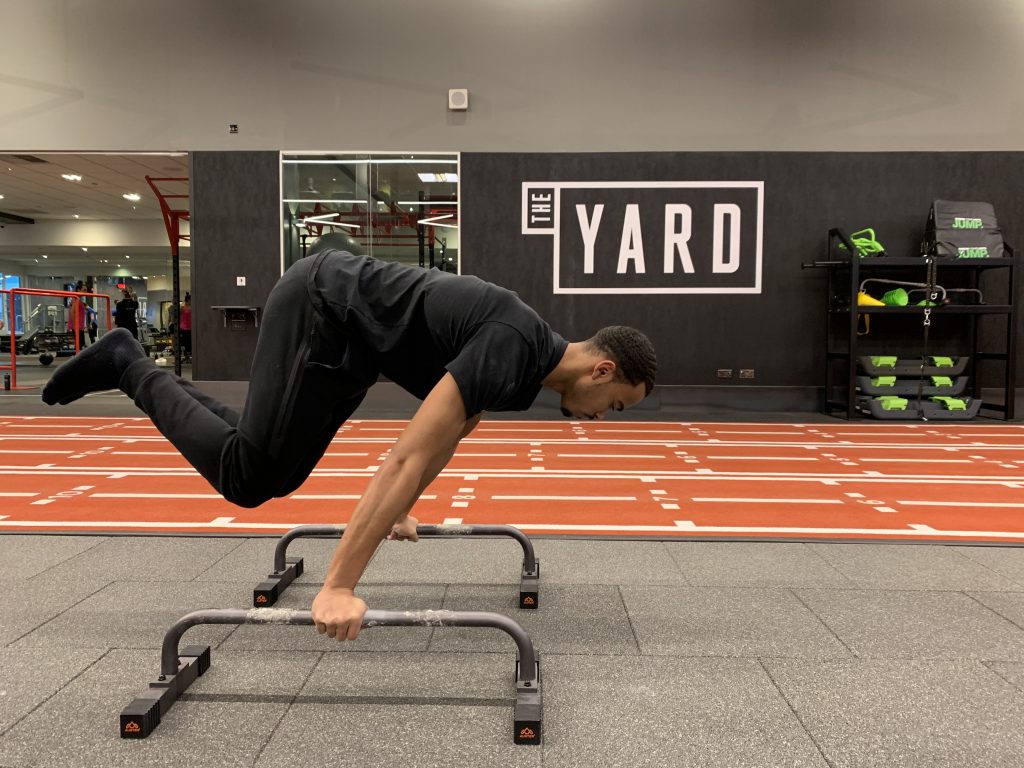You’ve had your Parallettes for a few months now. You’re moving from beginner to intermediate and looking to progress to the next level. But not sure what to do? Here is our top 5 Parallette exercises for those looking to progress to intermediate level. If you are a beginner, read our guide on beginner Parallette exercises here.
Tuck Push Ups
Often mistaken for Dips, Tuck push ups are a fantastic pressing movement to help progress to the Planche and Planche Press ups. They place a lot more emphasis on the shoulders, back and core, rather than the chest as in dips.
Take your bodyweight in your hands and tuck your knees into your ribs. Then protract your shoulder blades (push forward with a hunched back) and perform your tuck push ups. It’s very important to keep your shoulders pushed forward, rather than retracted (pulled back). This works the scapula protractor muscles and traps – ensuring they gain strength to lead to the Planche.
Advanced Tuck
Demonstrated by weighted Calisthenics champion @DentonConteh – the advanced tuck is perfect for those wanting to progress to the Planche. Begin in the tuck Planche position, then begin to extend your bent legs behind you, and hold for time.

V-Sit / L-Sit to Tuck
The V-Sit is the step up from the L-sit. Once you have mastered the L-sit, begin to push your hips forward towards your hands, and lift those legs even higher. Hold for time.

The L-Sit to Tuck exercise was also included in the beginner exercise guide. However for the intermediate version, aim to hold each end position for at least 5 seconds. The added time under tension for each rep really ramps up the difficulty and requires significantly more muscular endurance.
Dips on High bars
Dips are a fantastic way of increasing pushing strength. Unlike the Tuck push ups, ensure you keep your scapula and traps retracted (pulled back). Leaning forward slightly increases the emphasis on the chest, and try to go as low as possible on each rep. If you suffer from shoulder injuries then take care and only go to a 90 degree angle of your upper-lower arm. However there are massive muscular benefits of going lower, read our guide on training and staying injury free for tips.
For a more advanced version try an Archer dip, lowering your body to alternating sides. This helps load more of the bodyweight onto one arm.
Typewriter press ups
Typewriters are similar to Archer press ups but add in another level of difficulty. Lower yourself down to one side, then staying as low to the ground as possible, transfer your weight to the other hand. This improves range of motion strength at the lowest level, ensuring the triceps, chest and shoulders are not only strong but also mobile. Aim to finish each movement with one arm straight and locked.

